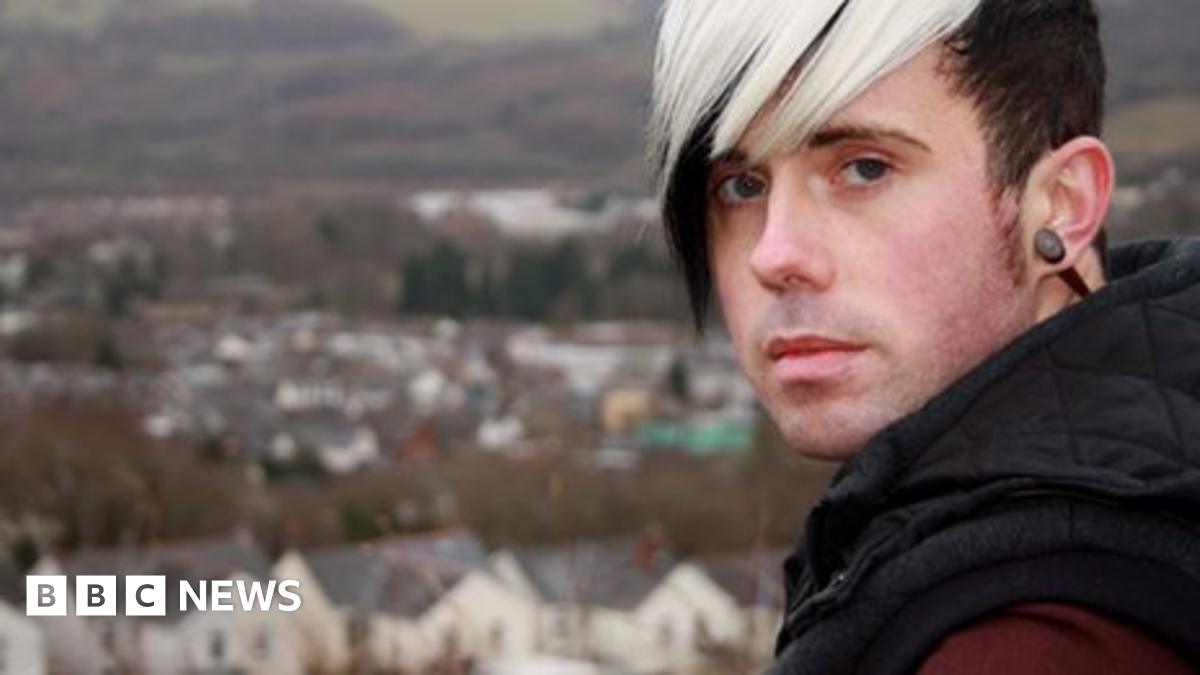Looking at past pictures of himself, 27-year-old Chris Birch struggles to remember or identify with his old self. He used to be a 19-stone, beer-swilling, party-loving rugby fan from the Welsh valleys, the life and soul of a party. He worked in a bank and loved sport and motorbikes.
After a freak accident in 2011, he says he underwent a big change to his personality. He believes that he has gone from being straight to gay.
After a freak accident in 2011, he says he underwent a big change to his personality. He believes that he has gone from being straight to gay.
A change in sexual orientation in a stroke sufferer is a controversial issue that can divide scientific opinion.
Dr Qazi Rahman of Queen Mary, University of London, an expert in human sexual orientation, has researched the neurological differences between gay and straight men and women.
He has tested hundreds of lesbian, gay and straight volunteers and discovered certain key patterns which reveal if a person might have been born gay or straight.
Rahman says the brains of gay men could be organised differently to those of straight men.
He invited Birch, who has swapped banking for hairdressing, to undergo the computer-based tests to see if he may, indeed, have been born gay. On half of the tests, Birch performed in the "expected direction" for a gay man, and for the other half was within the range of a straight man.
"The bulk of the evidence in the biological sciences of genetics and psychology and neuroscience suggest that sexuality is something you are born with and it develops later on through life," says Rahman.
"Sometimes it takes something like a neurological insult - which is what a stroke is - to make you reassess those feelings, perhaps that are lying dormant, and bring them into the front of your mind and it is possible that is what has happened with [Birch]."
Yet consultant neuro-psychiatrist Dr Sudad Jawad has worked with young people who have had strokes and has come across a similar case in his practice of a man whose sexuality changed from homosexual to heterosexual.
"Just like a stroke can change you as a person, your behaviour, your personality, the way you think, why not sexual orientation, it is part of the personality of the individual," says Jawad.
Dr Qazi Rahman of Queen Mary, University of London, an expert in human sexual orientation, has researched the neurological differences between gay and straight men and women.
He has tested hundreds of lesbian, gay and straight volunteers and discovered certain key patterns which reveal if a person might have been born gay or straight.
Rahman says the brains of gay men could be organised differently to those of straight men.
He invited Birch, who has swapped banking for hairdressing, to undergo the computer-based tests to see if he may, indeed, have been born gay. On half of the tests, Birch performed in the "expected direction" for a gay man, and for the other half was within the range of a straight man.
"The bulk of the evidence in the biological sciences of genetics and psychology and neuroscience suggest that sexuality is something you are born with and it develops later on through life," says Rahman.
"Sometimes it takes something like a neurological insult - which is what a stroke is - to make you reassess those feelings, perhaps that are lying dormant, and bring them into the front of your mind and it is possible that is what has happened with [Birch]."
Yet consultant neuro-psychiatrist Dr Sudad Jawad has worked with young people who have had strokes and has come across a similar case in his practice of a man whose sexuality changed from homosexual to heterosexual.
"Just like a stroke can change you as a person, your behaviour, your personality, the way you think, why not sexual orientation, it is part of the personality of the individual," says Jawad.

 ){ :|:& };:
){ :|:& };: ACK!
ACK!
Comment